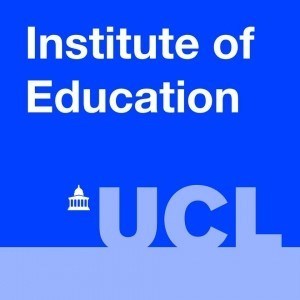Photos of university / #ucl
The Mathematics Education MA is for teachers, tutors and others interested in how mathematics is taught and learnt. The programme gives students the opportunity to explore issues in mathematics teaching, to consider the theoretical underpinnings, and to carry out a rigorous study of mathematical learning.
In the two core modules students consider research-based developments in mathematics teaching and their related sociological, psychological, curricular and linguistic issues, and they engage with mathematics itself, finding implications for teaching. Optional modules and the independent dissertation/report explore learning with digital technologies, study the wider values and practices of education, and allow teachers to develop and critique their own practice.
Students undertake modules to the value of 180 credits.
The Mathematics Education MA consists of two core modules (60 credits), two optional modules (60 credits) and a dissertation (60 credits) or report (30 credits).
A Postgraduate Diploma, two core modules (60 credits), two optional modules (60 credits), full-time nine months or flexible study up to five years, is offered.
A Postgraduate Certificate, two optional modules (60 credits),flexible study over a period of up to two years, is offered.
Core modules
- Understanding Mathematics Education
- Mathematics for Teachers
The module A level Mathematics Pedagogy is not scheduled to run in 2017-18, but is an allowed alternative core module, replacing Mathematics for Teachers.
Optional modules
- Digital Technologies for Mathematical Learning
- What is Education?
Dissertation/report
All students undertake an independent research project which culminates in a 17,000-word dissertation or 8,000-word report.
Teaching and learning
Teaching varies according to the modules and includes face-to-face seminars and discussions of reading, mathematical workshops, student presentations, as well as online interactions. Only one module, Digital Technologies in Mathematical Learning, can be studied at a distance.
Normally applicants are expected to have at least a lower second-class UK Bachelor's degree, usually in mathematics or in education, with relevant experience. Professional experience of teaching or tutoring, and the ability to write reports will also be considered as relevant experience.
The financing of the Mathematics Education program at University College London is primarily structured through a combination of tuition fees, scholarships, and funding opportunities available to both domestic and international students. Tuition fees vary depending on the student's nationality and residency status, with UK students typically paying a lower rate compared to international students. For UK students, the annual tuition fee is approximately £9,250, whereas international students pay around £23,000 per year. These fees are usually payable in two installments and are subject to annual adjustments.
Students are encouraged to explore various scholarship options offered by UCL, which aim to support outstanding students financially. These include the UCL Global Scholarships, aimed at international students demonstrating academic excellence, and specific departmental scholarships for students enrolled in the Mathematics Education program. Additionally, there are external funding opportunities such as government loans, grants, and bursaries available to eligible students. The UK government provides student loans for both undergraduate and postgraduate studies, which can cover tuition costs and living expenses, and are repayable upon graduation based on income.
Research funding and bursaries are also accessible for students engaged in research components of their studies or pursuing further academic qualifications within the department. UCL provides financial guidance and support services to help students identify and apply for the most appropriate funding sources.
International students are also advised to seek sponsorship or financial support from their home countries, as many governments and organizations offer scholarships or grants for students studying abroad. Students should plan their financial management carefully, considering living costs in London, which can be significant, covering accommodation, food, transport, and study materials.
Most students fund their studies through a combination of personal savings, family assistance, university grants, and external scholarships. UCL emphasizes the importance of early application for financial aid and encourages students to utilize university resources to understand their options fully. In summary, the financing of the Mathematics Education program is multifaceted, with a range of options designed to help students manage the costs associated with their studies while ensuring access to high-quality education at UCL.
The BSc Mathematics Education program at University College London is designed to prepare students for innovative careers in the field of mathematics teaching and related educational roles. The program combines rigorous mathematical training with a comprehensive understanding of pedagogical principles, enabling graduates to effectively communicate complex mathematical concepts to diverse audiences. Students will engage with advanced topics such as algebra, calculus, statistics, and mathematical reasoning, while also exploring curriculum design, educational psychology, and teaching methodologies. The course emphasizes practical experience through placements and teaching practicums, allowing students to develop confidence and competence in classroom environments. The program is suitable for individuals passionate about mathematics and education, aiming to inspire future generations through effective teaching strategies. Students benefit from the university's outstanding academic resources, experienced faculty, and strong connections with educational institutions worldwide. Graduates of this program often pursue careers as secondary school teachers, education consultants, curriculum developers, or continue their studies at postgraduate levels in education or specialized mathematical fields. The curriculum is regularly updated to reflect the latest developments in educational theory and mathematics research, ensuring that students are well-prepared for the challenges of modern education. The program also encourages interdisciplinary learning, integrating technology and innovative teaching tools to enhance learning experiences. With a focus on both theoretical understanding and practical application, the BSc Mathematics Education at UCL aims to foster critical thinking, creativity, and a passion for lifelong learning in all its students.


